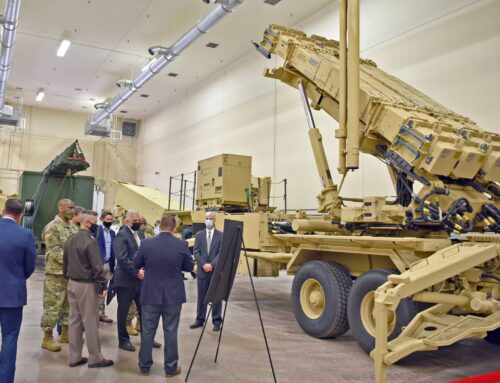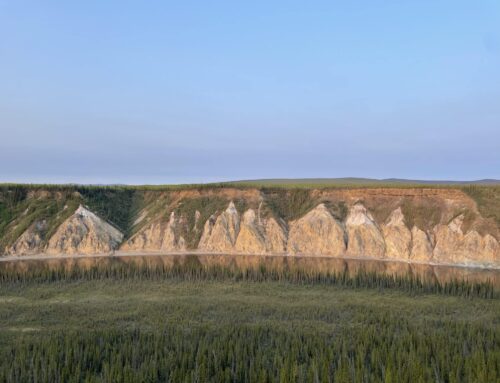Employees at the Eagle Butte and Belle Ayr mines came to work as usual on a Monday, July 1, 2019-a year ago today. Soon after arriving, miners were shepherded into a room and told the company would be filing for Chapter 11 bankruptcy.
Hours later, employees were escorted off the mine site. About 600 employees were sent home in all. For months, no one knew if they still had a job or if they might quickly get a call asking for their return. Meanwhile, checks and other benefits were not being properly distributed, it was unclear if Blackjewel would get the financing to conduct a thorough bankruptcy, and questions emerged around the ethics of leadership.
A year and more than 2000 court filings later, questions still remain regarding the Blackjewel bankruptcy.
What Kind of Bankruptcy Will It Be?
After much back and forth over the past year, the debtors’ estate-previously Blackjewel-will continue to carry out the bankruptcy as a Chapter 11. In other words, it will continue to be a point-by-point reorganization rather than a speedy liquidation. Debtors have until July 27 to file a Chapter 11 plan to exit bankruptcy. It’s a 91 day extension.
In the early stages of the bankruptcy, it wasn’t clear if debtors’ would be able to secure the transitional financing to afford a Chapter 11 reorganization. Recently, a group of unsecured creditors, those who are owed money at low-priority, argued a Chapter 7 liquidation plan was necessary.
According to an April court filing, those unsecured creditors are arguing that Debtors’ won’t have enough money to carry out their plan. In March, the debtors’ only held about $4 million on hand while still needing to repay substantial debts.
The debtors’ argued that they managed to make major recoveries for the estate.
“Converting the Debtors’ cases now would have the effect of eviscerating the Debtors’ months-long investigation of claims against insiders involving tens of millions of dollars of potential recoveries just as that investigation is nearing its completion,” a May court filing read.
Late this month, the group of unsecured creditors withdrew the motion to convert.
What’s Going On With The Shovels?
Since October, Komatsu, a manufacturer and supplier of earth-moving equipment, sought to retrieve its two electric shovels currently being utilized by Eagle Specialty Materials to mine coal. In October, ESM purchased the rights to mine at Blackjewel’s former mines in the Powder River Basin.
Komatsu is arguing that ESM and the debtors’ worked together to allow ESM unrestricted use of the shovels without payment to Komatsu while “frustrating Komatsu’s efforts to recover the shovels.”
Komatsu said the debtors are financially benefiting from using the shovels. Komatsu argues it’s now owed millions of dollars for the use of their shovels over the past several months.
In court filings, Eagle Specialty Materials warned that its business would immediately stop without the shovels. But the US Bankruptcy Court Southern District of West Virginia sided with Komatsu, saying it could begin the process of trying to recover their shovels. Instead of an immediate repossession, the company will need to work through state courts to further the process.
In a letter obtained by County 17 news, the CEO of Eagle Specialty Materials John McNab said there will be additional hearings in WY state court to continue to take up the matter.
“ESM is disappointed that the Blackjewel Estate failed to preserve rights to the shovels, which were supposed to be included and transferred to ESM for the continued operation of the mines at the time ESM acquired them,” he wrote.
Hoops Investigation
In January, the debtors’ estate sought permission to investigate Blackjewel’s former CEO and President Jeff A. Hoops over what it called “a year’s-long effort by Mr. Hoops to transfer tens of millions of dollars of the Debtors’ assets for his benefit and the benefit of his family and other Hoops-Related entities.”
Last July, court testimony revealed Hoops was making personal loans to Blackjewel and paying himself back, rather than the highest tier debtors. Hoops had described the $34 million he had paid to himself as normal business operations.
Since then, Hoops-Related Individuals have been asked to comply and provide certain financial and corporate documents. The entities pushed back that the order lacked evidentiary support and factual errors and asked the court to throw out the order.
Most recently, debtors’ filed a complaint alleging fraud. An analysis of records by the debtors’ found the $34 million was received by Clearwater Investment Holding, LLC, an entity created by Hoops’ and includes his wife.
Leases, Bonds, and Permits
Eagle Specialty Materials has a license to mine, according to the Wyoming Department of Environmental Quality, but reclamation bonds, federal leases, and the mining permit are held by other entities.
The federal coal lease is believed still to be in Blackjewel’s name due to the millions in unpaid royalties that still need to be addressed, according to a June court filing.
For those leases, the October sale order required ESM to come into an agreement with the federal government regarding remaining royalty payments in order to continue mining.
Similarly, the mine permits are held by Contura Coal West, LLC which is now a subsidiary of Eagle Specialty Materials. The Powder River Basin Resource Council submitted a letter to the DEQ questioning the legality of both.
“When did DEQ determine that ESM has the legal right to mine under the Contura Coal West permits, and if so, on what basis; or alternatively, if ESM/Contura Coal West is not the current federal coal lease holder, what actions are needed for ESM/Contura Coal West to come into compliance with the Mineral Leasing Act, SMCRA, and the Environmental Quality Act?” posed the June letter.
The DEQ says it’s legal for a subsidiary to hold the mine permit and that the department isn’t involved in the federal lease side of things.
In terms of reclamation, March data shows Contura Coal West holds all the bonds for ESM in the amount of $237 million with $15 million bonded from Indemnity National Insurance Company.
A recent report from Mark Olalde through the publication Desmog found Indemnity guarantees more than $900 million in coal surety bonds for 38 companies.
“If Indemnity National goes in the tank – with the number of bonds they have with these other companies – these other companies are not going to be able to replace them. They’re just not,” said a surety broker Olalde spoke with.
“That worst-case scenario would push the coal industry into unprecedented territory and would leave hundreds of millions of dollars in cleanup liability unprotected,” wrote Olalde.
The Wyoming DEQ said there’s set criteria to judge a surety company by the state’s insurance commission. The DEQ does not have authority of the companies used for bonding.
Future
Many questions still remain for ESM, which got involved in the coal industry at a time production has fallen to its lowest level since 1975. Indeed, production has fallen as well for ESM. According to data from the Mine Safety and Health Administration, Belle Ayr’s first quarter coal production has fallen by about 25 percent. For Eagle Butte, nearly 50 percent.
Andy Blumenfeld, head of market analytics for IHS Markit, predicts production in the Powder River Basin to fall over 20 percent in the second quarter.
Lynne Huskinson, former senior operator at Eagle Butte, is now running for House District 32. She’s set to announce today, on the anniversary of the company’s bankruptcy. She was moved by how affected workers were by the bankruptcy – as many not only lost out on paychecks, but payments into health savings and retirement accounts.
“But I just wanted to have a different set of eyes, a different voice, someone who cares about workers and what they go through. Communities, when we do lose our livelihoods, what are we gonna do?” she asked.
Huskinson said she’s had colleagues and friends leave Wyoming due to the mine’s closure. And now, she’s worried about her friends, who were called back.
“I worry for them because the last I heard was that they don’t, they can’t built-in overtime away. Rather than pay them their built-in overtime, they get off their last day-shift,” she said.
At this time, ESM does not have a contact made available to the media for comment.
“This is a business model that really hinges on demand growth and on high-cost and being the low-cost player. That’s not what’s happening in the world of cheap gas and inexpensive renewables,” said Clark Williams-Derry, “This is not an industry that has the kind of future that ESM was hoping for because the fundamentals of energy are pointing away from coal.”
Some workers are still waiting to learn the details of the settlement reached for approximately 1,700 workers that began in July, 2019.
Campbell County, where two of ESM’s mines are, says Eagle Specialty Materials is currently up-to-date on its taxes through an agreed upon payment plan.
According to Taxpayers for Common Sense, Arch Resources, formerly known as Arch Coal, and Peabody Energy have requested relief on royalty payments from the federal government. Alternatively, Eagle Specialty Materials has made no such request according to the Department of the Interior’s online system.
Meanwhile, the Chapter 11 reorganization plan continues as debtors’ prepare to finalize its exit strategy from bankruptcy within the next month.











Get Social